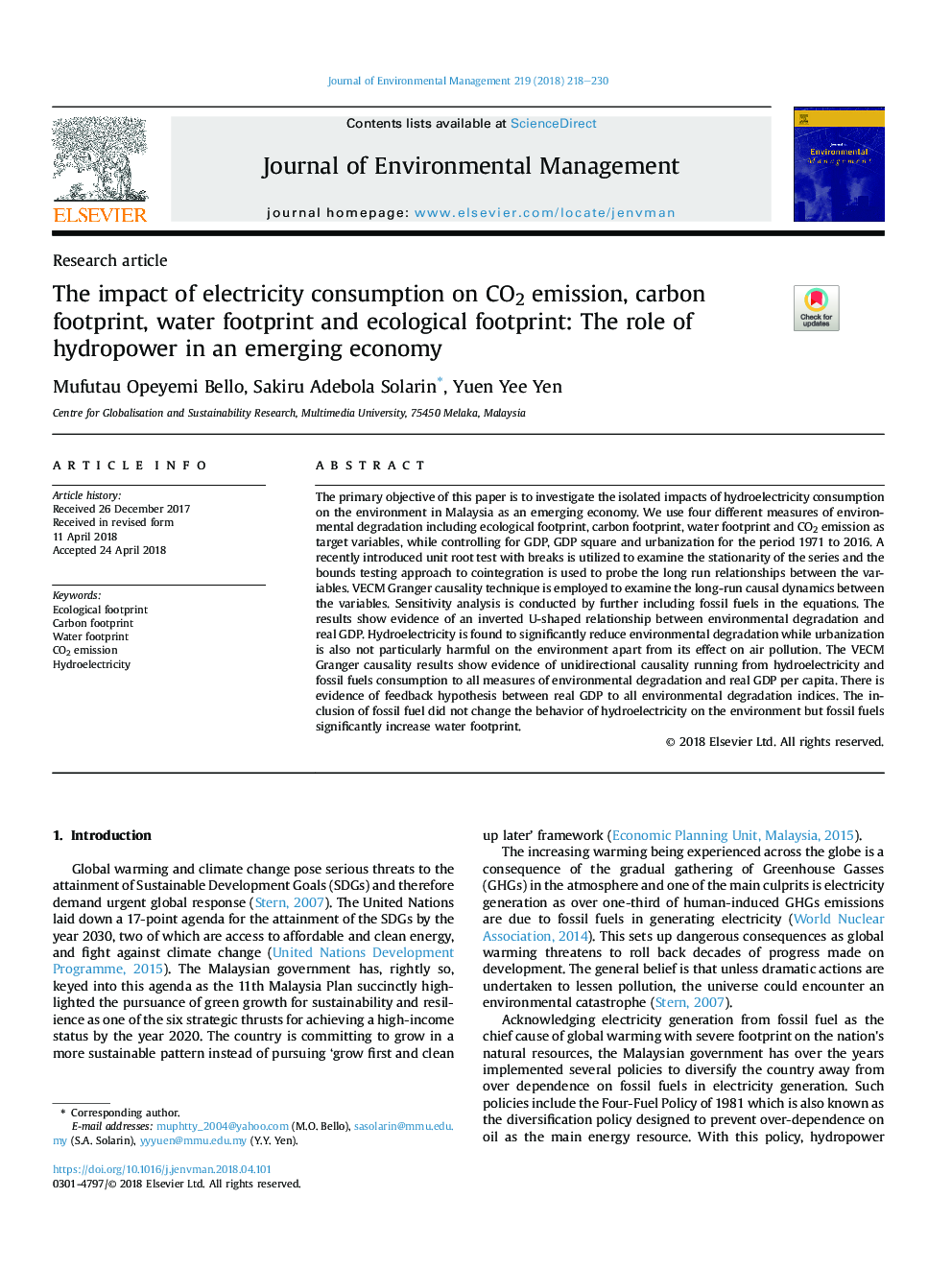| Article ID | Journal | Published Year | Pages | File Type |
|---|---|---|---|---|
| 7476703 | Journal of Environmental Management | 2018 | 13 Pages |
Abstract
The primary objective of this paper is to investigate the isolated impacts of hydroelectricity consumption on the environment in Malaysia as an emerging economy. We use four different measures of environmental degradation including ecological footprint, carbon footprint, water footprint and CO2 emission as target variables, while controlling for GDP, GDP square and urbanization for the period 1971 to 2016. A recently introduced unit root test with breaks is utilized to examine the stationarity of the series and the bounds testing approach to cointegration is used to probe the long run relationships between the variables. VECM Granger causality technique is employed to examine the long-run causal dynamics between the variables. Sensitivity analysis is conducted by further including fossil fuels in the equations. The results show evidence of an inverted U-shaped relationship between environmental degradation and real GDP. Hydroelectricity is found to significantly reduce environmental degradation while urbanization is also not particularly harmful on the environment apart from its effect on air pollution. The VECM Granger causality results show evidence of unidirectional causality running from hydroelectricity and fossil fuels consumption to all measures of environmental degradation and real GDP per capita. There is evidence of feedback hypothesis between real GDP to all environmental degradation indices. The inclusion of fossil fuel did not change the behavior of hydroelectricity on the environment but fossil fuels significantly increase water footprint.
Related Topics
Physical Sciences and Engineering
Energy
Renewable Energy, Sustainability and the Environment
Authors
Mufutau Opeyemi Bello, Sakiru Adebola Solarin, Yuen Yee Yen,
